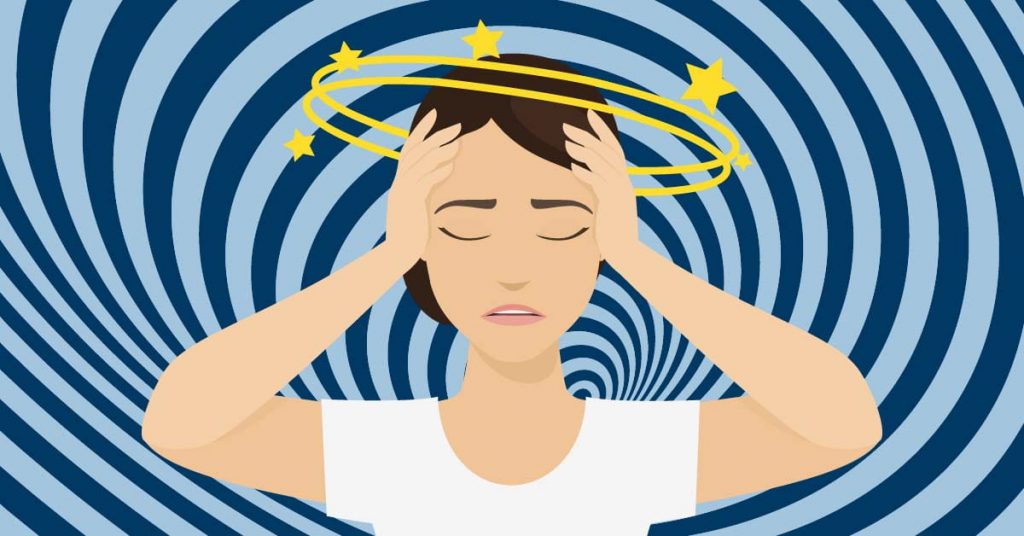
Vertigo
What is vertigo?
Vertigo is a sensation of spinning dizziness. Vertigo is a symptom, rather than a condition itself,where a person feels as if they or the objects around them are moving when they are not.
Causes of Vertigo
Vertigo is often caused by an inner ear problem. Some of the most common causes include:
Labyrinthitis: This is an inflammation of the inner ear labyrinth.
Vestibular neuronitis: Inflammation of the vestibular nerve, usually due to a viral infection.
Cholesteatoma: This is a skin growth that occurs in the middle ear, usually as a result of repeated infection. If the growth becomes larger, it can damage the ear, leading to hearing loss and dizziness.
Ménière’s disease: A buildup of fluid in the inner ear can lead to attacks of vertigo with ringing in the ears and hearing loss.
BPPV (Benign paroxysmal positional vertigo): This is thought to stem from a disturbance in the otolith particles. These are the crystals of calcium carbonate within inner ear fluid that touch the sensory hair cells inside the semicircular canals during movement.
Symptoms of Vertigo
A person with vertigo will have a sense that their head, or their surrounding environment, is moving or spinning.
Vertigo can be a symptom of other conditions, and it can also have its own set of related symptoms.
These include:
- balance problems and lightheadedness
- a sense of motion sickness
- nausea and vomiting
- tinnitus
- a feeling of fullness in the ear
- headache
Vertigo is not just a general feeling of faintness. It is a rotational dizziness.
Diagnosis of vertigo
Your Doctor will investigate the symptoms to know:
- Details of the first episode of your symptoms and what they were – for example, whether you felt lightheaded or if your surroundings were spinning
- If you also experience other symptoms – such as hearing loss, tinnitus, nausea, vomiting or fullness in the ear
- How often your symptoms occur and how long they last for
- If your symptoms are affecting your daily activities – for example, whether you’re unable to walk during an episode of vertigo
- Whether anything triggers your symptoms or makes them worse, such as moving your head in a particular direction
- What makes your symptoms better
Depending on your symptoms, Doctor may refer you for further tests such as, Hearing tests, Videonystagmography , Caloric testing, Posturography, Scans (Usually, either a magnetic resonance imaging (MRI) scan or a computerised tomography (CT) scan is used).
HOMEOPATHIC TREATMENT-
Homeopathic medicines provide symptomatic relief in Vertigo. The medicines are selected basis the theory of individualization and symptoms similarity by using Homoeopathic holistic approach.
Following remedies are highly effective in the treatment of Vertigo:
- Belladona
- Leading Homeopathic medicine for treating Vertigo.
- Condition worsens with every change of position.
- Patient usually gets some relief by applying pressure or binding the head.
- The body may also experience excessive heat.
- Gelsemium
- Dizziness associated with dim vision and heaviness of eyelids.
- Difficulty in walking with a loss of balance.
- CocculusIndicus
- Vertigo with nausea and vomiting.
- Vertigo with nausea during travelling.
- Vertigo resulting from Cervical Spondylosis.
- Pulsatilla
- Effective remedy for women suffering from vertigo,worsens due to the delayed or suppressed menses.
- Vertigo with the sensation that objects around you are revolving in a circle.
- Patient prefers to go in open, fresh air to alleviate the symptoms of vertigo.
- Phosphorus
- Vertigo in the aged people.
- Feeling of whirling, fainting, or floating resulting due to vertigo.
- May get a relief in the dark.
